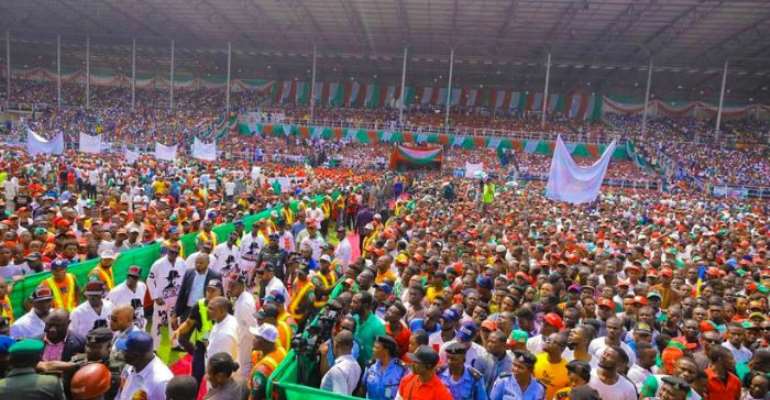2023 Elections Campaign Talking Points

According to the provisions of the Electoral Act 2022, campaigns for the 2023 elections have commenced. Candidates for the election have started constituting their campaign councils. Nigerians are already agog with the campaigns and people have started to either convince or cajole others to support their candidates. However, beyond constituting campaign councils or urging people to support candidates, there are issues that are cogent which should form the basis of choosing that will steer the affairs of the country in 2023. These issues should form the talking points of the campaigns.
Unemployment rate in Nigeria is alarming. Many Nigerians do not have jobs. The statistics from the National Bureau of Statistics do not look good. According to its Q4 2020 report, the unemployment rate among young people (ages 15-34) is around 42.5 per cent, while under employment of people within the same age bracket is 21.0 per cent. According to the report, a large percentage of Nigeria’s working population is younger than 34 years. The unemployment rate for people between the age brackets of 15-24 is at 53.4 per cent, while it is 37.2 per cent for people within the age range of 25-34. The unemployment rate for males stood at 31.8 per cent, while it is 35.2 per cent for females.
These high rates are dimming the hopes of our young people. A lot of them have decided to abandon the country in search of greener pastures abroad. This is not good for the country as we are losing our bright minds to other countries.
The statistics provide answers to the security challenges, unrest and that Nigeria is faced with. There are too many youths who are not doing anything and an idle mind is the devil’s workshop. We cannot get solutions to these security issues except we gainfully engage our youths. Youths constitute the largest percentage of our population as well as the voting population. They are the heartbeat of any nation. We must give them a special consideration. As long as we continue to neglect them, we would continue to suffer the consequence, which is manifested in the form of social vices and deviance.
Candidates who aspire to lead this country must study the unemployment statistics and develop implementable solutions to tackle the problem. No government can function properly when a majority of its working population is unemployed. The workforce in Nigeria is witnessing a high growth rate; something innovatively must be done to urgently accommodate this increasing number.
It is common knowledge that no government can employ all its population. However, the government can reduce unemployment through ensuring a conducive and enabling environment for businesses to thrive. Small and medium scale businesses can become the mainstay and driving force of the economy. In countries like Jordan that sector alone constitutes about 60 per cent of its labour force. To drag down the unemployment rate in Nigeria, we must encourage this sector through the creation of incentives such as tax waivers, flexible loans, stable power supply etc. There must be a conscious effort to develop different sectors of the economy as well. Massive infrastructure, rural development and a remodelling of schools curriculum to reflect modern day realities and an investment in technology and visionary leadership should be put in place. We also need to focus on developing the informal sector of the economy. These are the things that politicians should discuss at campaign grounds. However, they will not; except the people urge them to.
In the year 2021, the current administration launched the Nigerian Youth Employment Action Plan (2021-2024). All presidential aspirants for next year’s election study this plan and inform the youths during their campaigns what they plan to do with it. The youths themselves should study the action plan in order to be able to engage effectively with the presidential candidates. People should not wait for candidates to be elected before they engage them constructively. In any case, politicians in Nigeria are only accessible prior to elections. After elections, they become inaccessible. Youths must grab opportunities offered by the campaigns to elicit a strong commitment to their course; one that they can use to assess the government.
Converting campaign venues to places for fanfare underscores the point that we have not learned any lessons from the past. We cannot be doing things in the same way and expect a different result. Campaign centres should offer hope and provide a direction for the country and should therefore not be reduced to places of tentative merriment.
Frank can be reached through [email protected]
